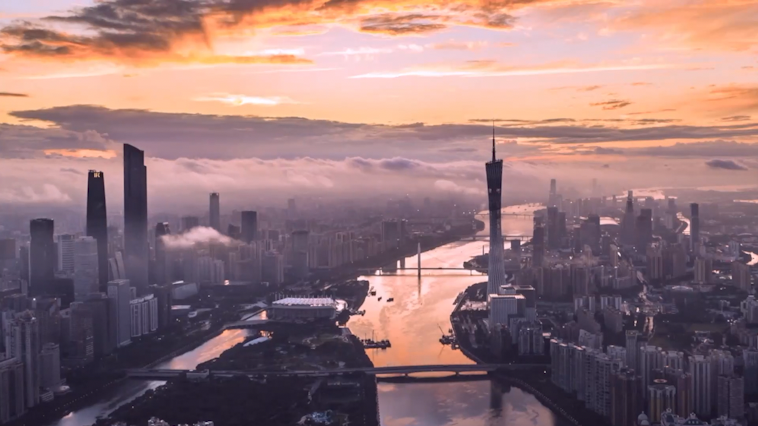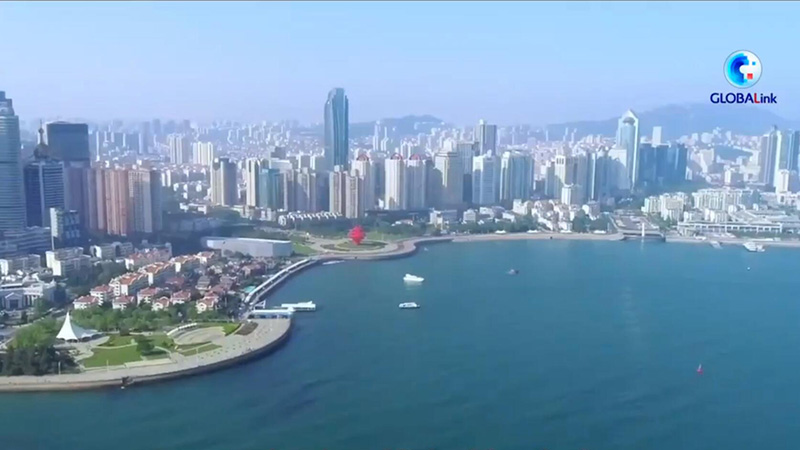* Problems relating to poverty, migration and social exclusion tend to be concentrated in lower-income neighborhoods in France.
* The crisis would "without a doubt" leave lasting traces in France's urban areas and on the minds of the French.
PARIS, July 5 (Xinhua) -- The tragedy of Nahel, a teenager of North African descent who was shot dead in a Paris suburb on June 27, has sparked a week-long chaos in France. People in other European countries have also joined the ranks of demonstrators to protest police racism and brutality, causing grave concern in other parts of the continent.
On July 1, single mother Mounia who lives in Nanterre, western suburbs of Paris, had to bury her only son, the 17-year-old Nahel who was fatally shot at the chest by a French police officer during a traffic check.
Hours after the death of her son, Mounia published two videos on social media. In the first one, the grieving mother cried desperately and said: "What am I going to do?... I only have one son, I don't have ten, I only have one. He was my life." She then asked people in a second video to participate in a march in memory of her son in Nanterre where Nahel was born and raised all by herself.
People take part in a protest in Nanterre, a town on the western outskirts of Paris, France, on June 29, 2023. (Photo by Aurelien Morissard/Xinhua)
On the first night of Nahel's death, protesters clashed with the police, leading to 31 arrests in the suburbs of Paris, including 20 in Nanterre. But the protests quickly escalated into riots and spread to major cities across France.
According to official figures, the week-long riots have already put almost 4,000 people in police custody, including 1,124 minors. This has become one of the most serious riots in France, topping the 2005 riots caused by the death of two teenagers of African descent who were accidentally electrocuted during a police chase.
A French municipal police officer is seen on duty on the famous Champs-Elysees Avenue in Paris, France, July 2, 2023. (Xinhua/Gao Jing)
RACISM ACCUSATION
The policeman "saw the face of an Arab, of a little kid, he wanted to take his life," Mounia said in an interview with French public television France 5 on June 29.
"He didn't have to kill my son, there were other ways of doing it. A bullet? So close to his chest? No, I can't imagine that...," she said.
"I don't blame the police, I blame a person the one that took my son's life," Mounia said, calling on France's justice system to be "really firm" with the police officer who shot dead her son.
The United Nations asked France Friday to "seriously" address racism and discrimination issues of the French police.
"This is a moment for the country to seriously address the deep issues of racism and discrimination in law enforcement," said Ravina Shamdasani, spokesperson for the UN High Commissioner for Human Rights.
The French government quickly responded, referring to the UN accusation as "completely unfounded."
"Any accusation of racism or systemic discrimination by the police in France is completely unfounded," the French Foreign Ministry said in a press release.
This is not the first time that the French police have been accused of racism. According to the French television channel TV5 MONDE, in December 2022, the UN Committee on the Elimination of Racial Discrimination (CERD) expressed its "deep concern" over the frequent use of identity checks, discriminatory arrests, and the application of fixed fines imposed by police or law enforcement, targeting "disproportionately" people of foreign origin in France.
"France does not draw the consequences of the criticisms it receives on this subject," Simon Foreman, lawyer of the National Consultative Commission on Human Rights of France, told TV5 MONDE.
For him, all the decisions taken at the parliamentary level concerning law enforcement always go "tougher" towards the suburbs and young people.
Burnt buses are seen at the Fort d'Aubervilliers bus terminal, in Aubervilliers, north of Paris, France, June 30, 2023. (Xinhua/Gao Jing)
SOCIAL POLARIZATION
Nanterre, where Nahel lived, is a city with a large percentage of immigrants and higher unemployment rate compared with the city of Paris or even another Paris suburb, Neuilly-sur-Seine.
According to the latest figures published in 2023 by the French National Institute of Statistics and Economic Studies (INSEE), the unemployment rate for people aged 15-24 in Nanterre was 23.1 percent in 2020.
A study published last year by Institut Montaigne, a think tank based in Paris, said problems relating to poverty, migration and social exclusion tend to be concentrated in lower-income neighborhoods in France.
The institute noted that lower-income neighborhoods in France face serious funding problems concerning education, child services, and healthcare services.
"Drop-out rates peak in low-income communities, where 1 in 6 teenagers will drop out of school," it said in its study.
Speaking to the French news channel BFMTV, Mokrane Kessi, president of the association "France of the suburbs," said that the death of Nahel has prompted the young people from the suburbs to "revolt," because they believed they were considered as second-class citizens in the French society.
"There is such anger (among the youth), you cannot imagine," he noted, adding that the authorities have not heard the people from the suburbs for 40 years.
A survey conducted by French research and consulting firm Elabe and BFMTV showed Tuesday that 48 percent of the French believe that the suburbs are the "forgotten" neighborhoods in France.
The latest French weekly newspaper Courrier International published on Monday said that France has a serious integration problem for immigrants.
"With an equivalent profile, a young black person or a person of North African origin is much less likely to be recruited by a company and much more likely to be checked by the police," the newspaper said.
"He must constantly prove that he is as French as the others. He will be observed, scrutinized and will not have the right to the same errors as the others," it noted.
A building burned by protesters is seen in Roubaix, France, on June 30, 2023. (Photo by Sebastien Courdji/Xinhua)
RIPPLE EFFECT
During the seven-day riots, angry protesters have set vehicles, trash bins, and buildings on fire. According to the estimation by Ile-de-France Mobilites, the riots have cost the public transport company at least 20 million euros (21.75 million U.S. dollars).
"These acts of violence are very disappointing, because the intentions of these protests were good," an elderly French told Xinhua, on condition of anonymity.
The riots have also traumatized France's tourism. According to Jean-Francois Rial, president of the Paris Tourist Office, there are already thousands of cancellations of holidays to Paris.
Geoffroy Roux de Bezieux, president of the Movement of the Enterprises of France, the largest employer federation in France, estimated that the cost of the riots would be at least 1 billion euros (1.09 billion dollars).
The riots have also created copycats in Europe. Some people in Belgium and Switzerland also staged protests against police brutality.
German Chancellor Olaf Scholz said on Sunday that he was "concerned" by the urban violence in France, which led to the cancellation of French President Emmanuel Macron's state visit to Germany.
American media are directly linking Nahel's death to George Floyd, an African American man killed by a white U.S. police officer three years ago. For The Wall Street Journal, the death of Floyd has fueled a new debate in France on police tactics, while Macron's government denied racism within the police force.
Former Prime Minister Edouard Philippe said in a letter read by the French daily newspaper Le Figaro that the crisis would "without a doubt" leave lasting traces in France's urban areas and on the minds of the French.
As for the family of Nahel, his aunt said that her concern is now about Mounia.
"My sister has been completely focused on her son, her only son. I'm afraid she will do something stupid when she faces loneliness, once everything calms down," she said. (Video reporter: Sun Xinjing; video editors: Zhou Sa'ang, Luo Hui)■












